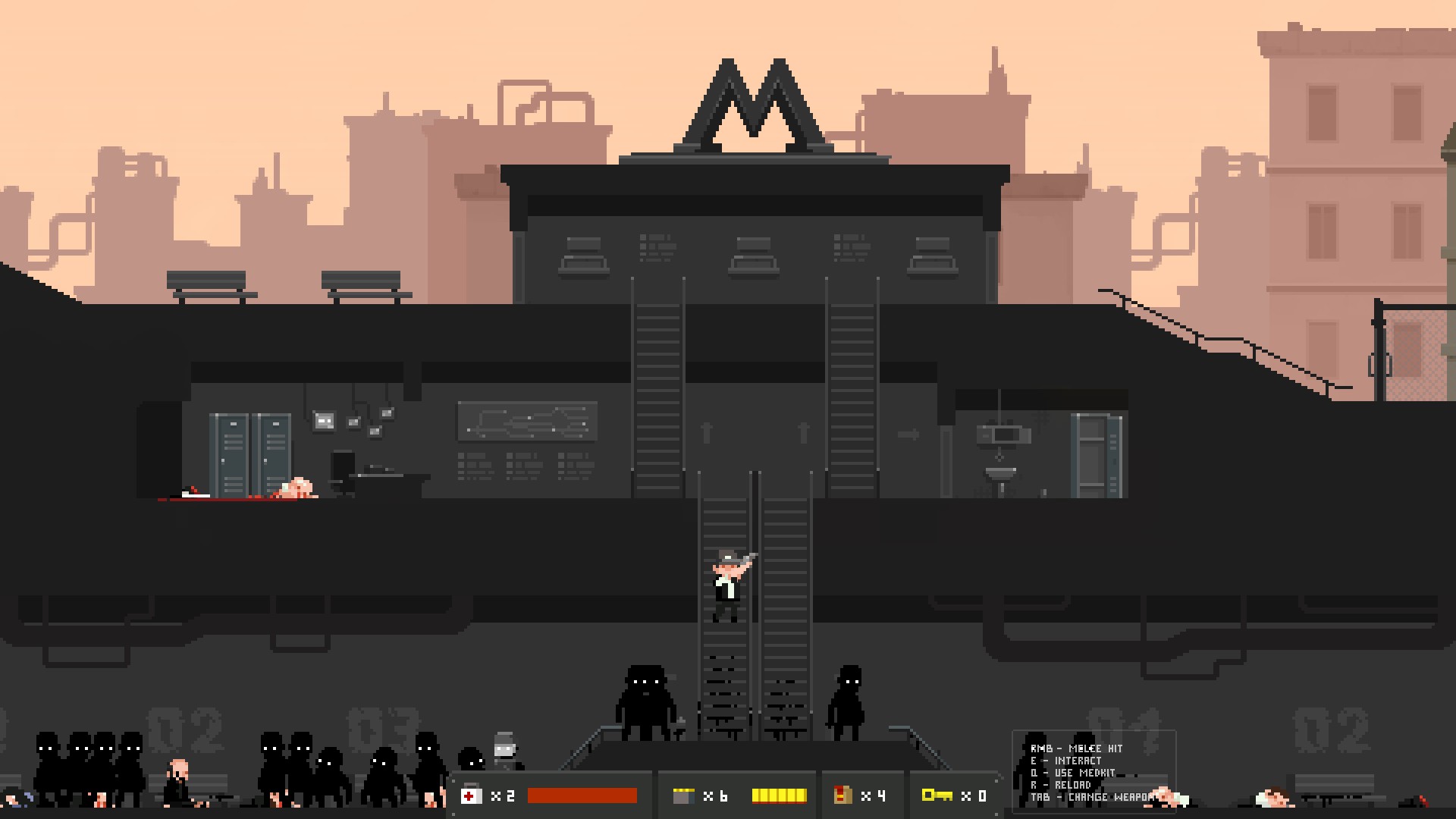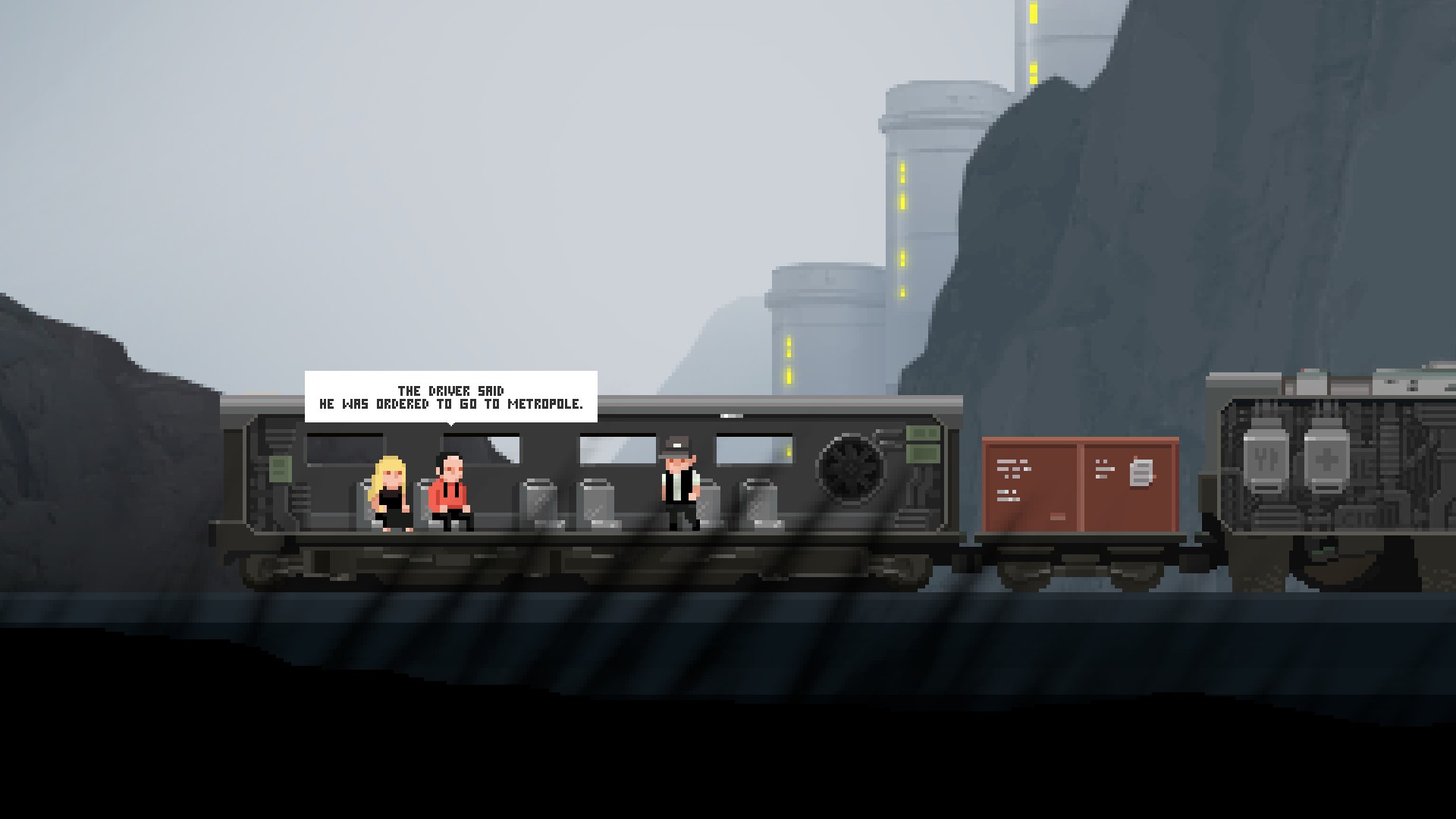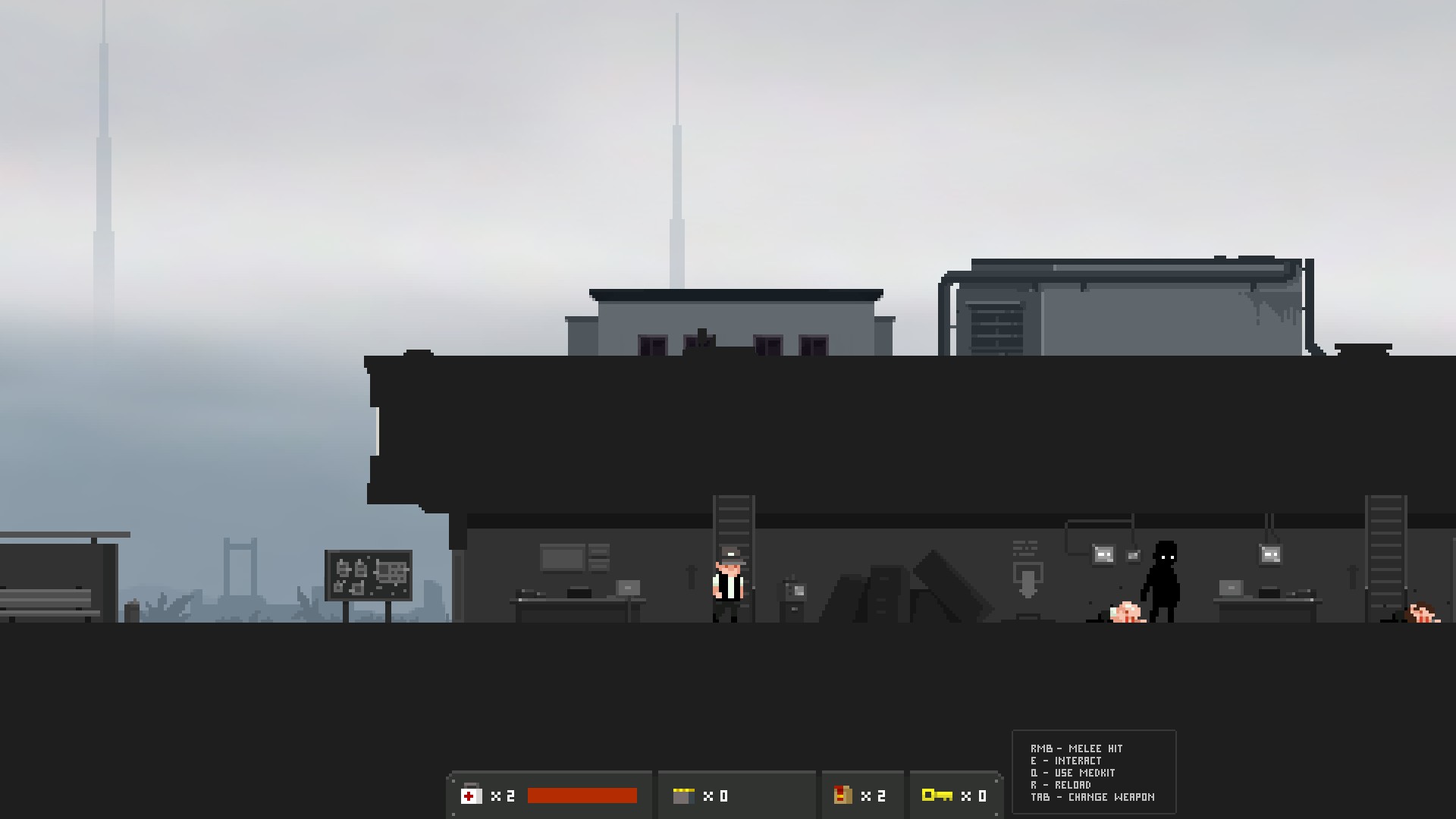The Final Station’s subtle mysteries keep its post-apocalyptic train on course
What the heck is going on in Russia?

My name is Ivor. I'm an engine driver. I'm wheeling my vaguely-futuristic train through the grey, hushed landscape of post-holocaust Russia, stopping at stations to search for survivors and tend to their needs. It's a grim, bizarre, and occasionally beautiful place, enshrouded in fear and mystery, and also the kind of setup for a videogame that I absolutely love. I went into The Final Station, a 2D, side-scrolling, retro-styled action-adventure game, with very high hopes. But after a few hours with the recently-released preview build, I'm worried it's not quite all its cracked up to be—except where the story is concerned.
Stations along the route can't be bypassed, so I was forced to explore all of them, even when shortages of ammunition and medkits left me ill-equipped to deal with the spooky, wraith-like ‘Infected’ lurking in their halls and closets. And it's really ‘exploration’ in name only: The layout and contents of each individual station is the same from game to game, and the paths through them are almost perfectly linear. The goal is to find the four-digit code that ‘unlocks’ the train and allows it to move to the next station in the line. Each code is hidden in increasingly unlikely and convoluted circumstances—Bob wrote it down and stuffed it in his pocket before he nipped into town to buy a pack of smokes, and the world ended while he was out—and you’re stuck until you track it down.

Once you do, you can be on your way, or if you prefer, you can keep poking around and maybe dig up some food, medicine, ammo, or money, all of which will make life on the rails a little easier. Supplies are scarce, and the Infected are not, which can make for some very tense (read: frustrating) moments. Getting a handle on melee combat helped ease the ammo pressure, but the hand-to-hand ‘fights,’ which are simply a matter of running back and forth past infected and timing right-clicks to punch them as you go by (and hopefully not getting clobbered in kind), aren't much fun.
Risk vs reward decisions are meant to be the basis for much of The Final Station's tension, but it never adds up to much because you can’t leave a station and move on to the next without doing a nearly complete circuit through it anyway. The tough calls that are supposedly at the heart of the game are largely non-existent: At one point, I discovered a note warning me not to go to the subway, which was fine, because subways are generally bad news in a post-apocalypse anyway—except, whoops, I have to go to the subway, because it's the only way to continue through the level. (And of course it's packed with infected.)
Foreshadowing is fine, but suggesting that I have a choice in the matter, and then almost immediately taking it away is just irritating. I get that there's a story to be told, but I came into The Final Station expecting that I'd have some control over my destiny, and moments like this are an explicit reminder that for the most part, I do not. Similarly, I didn't have the option to reject potential passengers in order to preserve resources; the people I talked to decided for themselves whether or not they'd join my train, without any input from me. (Joke was on them, though: Most of them died long before we made it to our destination.)

Keeping the people I picked up alive was the other half of my job as an the engineer, and that was both trickier and more tedious than I expected. They are (or were, as it almost inevitably turned out) incredibly delicate. People who by all appearances were in good health when I picked them up would starve to death between stations if I didn't bring them food, or suffocate if I failed to adequately monitor the ventilation system. My assumption is that these survival mechanics are meant to inject drama and tension between stations, but it just doesn't work in its current state. It's entirely superfluous, and even silly: These people will literally die in their seats rather than get up and open a window. Death comes so quickly and of such easily avoidable causes that I quickly stopped caring. I became like William Hurt in A History of Violence, staring down at the fallen and wondering how they possibly could have been so stupid. (It didn't help that it seemed not to matter whether they lived or died anyway.)
The Final Station's world was pretty clearly a mess well before disaster struck.
So The Final Station is very linear, and a bit dull, and the segments aboard the train fail to add anything to the experience but a bit of pointless busywork. In spite of all that, I want to see more. The preview build isn't complete—the dialog is largely placeholder, mechanics are still being worked on, and it only covers the first, shortest chapter of the game—and more importantly, I really feel like there's something legitimately intriguing in it. The preview only hints at it, but The Final Station's world was pretty clearly a mess well before disaster struck. And the end of the world isn't necessarily as bad as it sounds, either. Cities continue to function, with people going about their business, some of them apparently unaware that anything untoward is happening at all. There was also a late-preview surprise that was genuinely disturbing, and subtle enough that I almost missed it.
Keep up to date with the most important stories and the best deals, as picked by the PC Gamer team.
That's why I'll keep following along, and look forward to playing the final release, whenever it comes out. I wish it was for a better reason than a vaguely-formed hope that its potential will coalesce into something worthwhile, but unless and until the stations become more fun to play through, and I’m given some proper freedom to make the decisions that move the game forward, the mystery of this grey, broken world is The Final Station’s only real hook right now.

Andy has been gaming on PCs from the very beginning, starting as a youngster with text adventures and primitive action games on a cassette-based TRS80. From there he graduated to the glory days of Sierra Online adventures and Microprose sims, ran a local BBS, learned how to build PCs, and developed a longstanding love of RPGs, immersive sims, and shooters. He began writing videogame news in 2007 for The Escapist and somehow managed to avoid getting fired until 2014, when he joined the storied ranks of PC Gamer. He covers all aspects of the industry, from new game announcements and patch notes to legal disputes, Twitch beefs, esports, and Henry Cavill. Lots of Henry Cavill.

